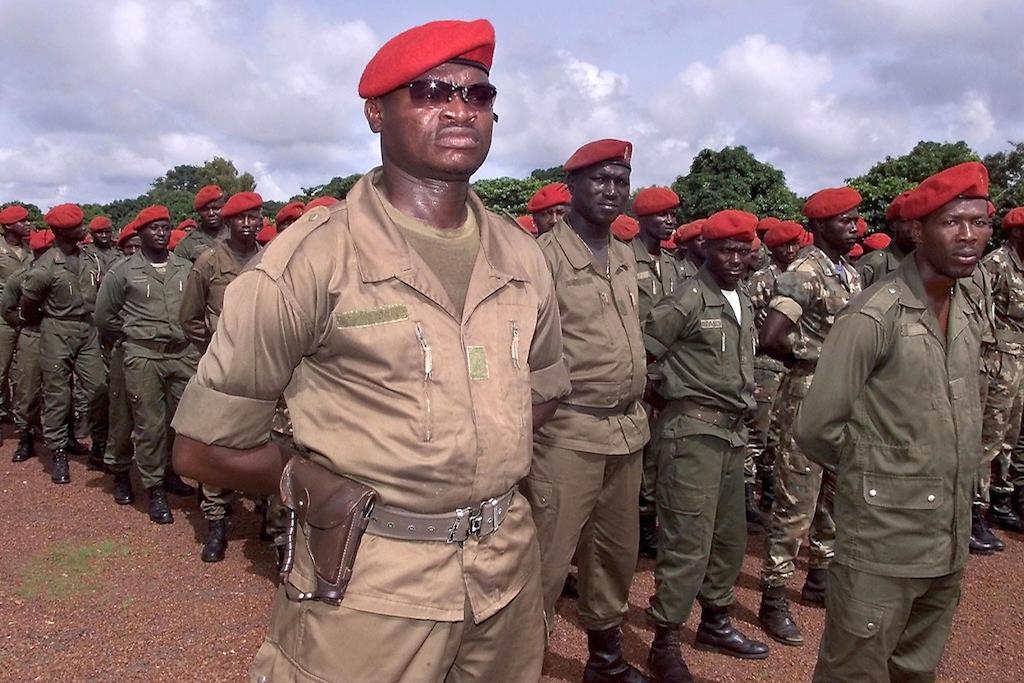Guinea-Bissau: Timeline of Coups
Soldiers of Guinea-Bissau at a military camp on July 22, 2003. On September 14, 2003, the Guinea-Bissau military staged an apparently bloodless coup, overthrowing President Kumba Yala.
On Thursday evening, Guinea-Bissau soldiers seized Interim President Raimundo, presidential candidate Prime Minister Carlos Gomes Junior, and control of the impoverished West African nation, according to the AFP.
A statement by those now in power, the self-titled Military Command, claimed they acted after discovering a “secret document,” signed by Gomes and Raimundo. The documented supposedly revealed a deal between the Guinea-Bissau and Angola governments, a contract that would have allowed Angolan troops to occupy and “attack Guinea-Bissau’s military,” according to CNN.
Angola issued a statement saying it will withdraw all its troops from Guinea-Bissau's territory (they were there to assist with military training), according to the Africa Review.
An AFP article quoted the Military Command, saying it has no intention of ruling the county. But even if the military wanted to rule, it’s unlikely they could hold power for long. Guinea-Bissau has a tumultuous history of conflicts between its army and state powers.
Here’s a timeline of some of the key moments in the nation's history of coups:
September 10, 1974: After more than 11 years of war with Portugal and the toppling of Portugal’s authoritarian dictatorship, Guinea-Bissau gains independence. Luis Cabral becomes Guinea-Bissau’s first president.
November 14, 1980: Cabral is overthrown by Prime Minister Joao Bernado Vieira during a bloodless coup.
June 7, 1998: A military coup led by General Ansumane Mane fails.
May 7, 1999: The military overthrows President Vieira and Malam Bacai becomes interim president.
November 28, 1999: Kumba Yala wins the next presidential election.
September 14, 2003: The military seizes power and overthrows Yala.
July 24, 2005: Former President Vieira wins the next election.
March 2, 2009: Vieira is murdered. Raimundo Pereira becomes interim leader.
June 5, 2009: Military police kill politicians in what they said was an attempted coup.
July 29, 2009: Malam Bacai Sanha wins presidential election.
January 9, 2012: President Malam Bacai Sanha dies of natural causes (he was diabetic) in Paris. Raimundo Pereira becomes the next president.
March 2012: Presidential election scheduled, but disrupted by military coup.
Perhaps the most salient fact in all this: an elected president has never completed his term in office, according to News 24.
